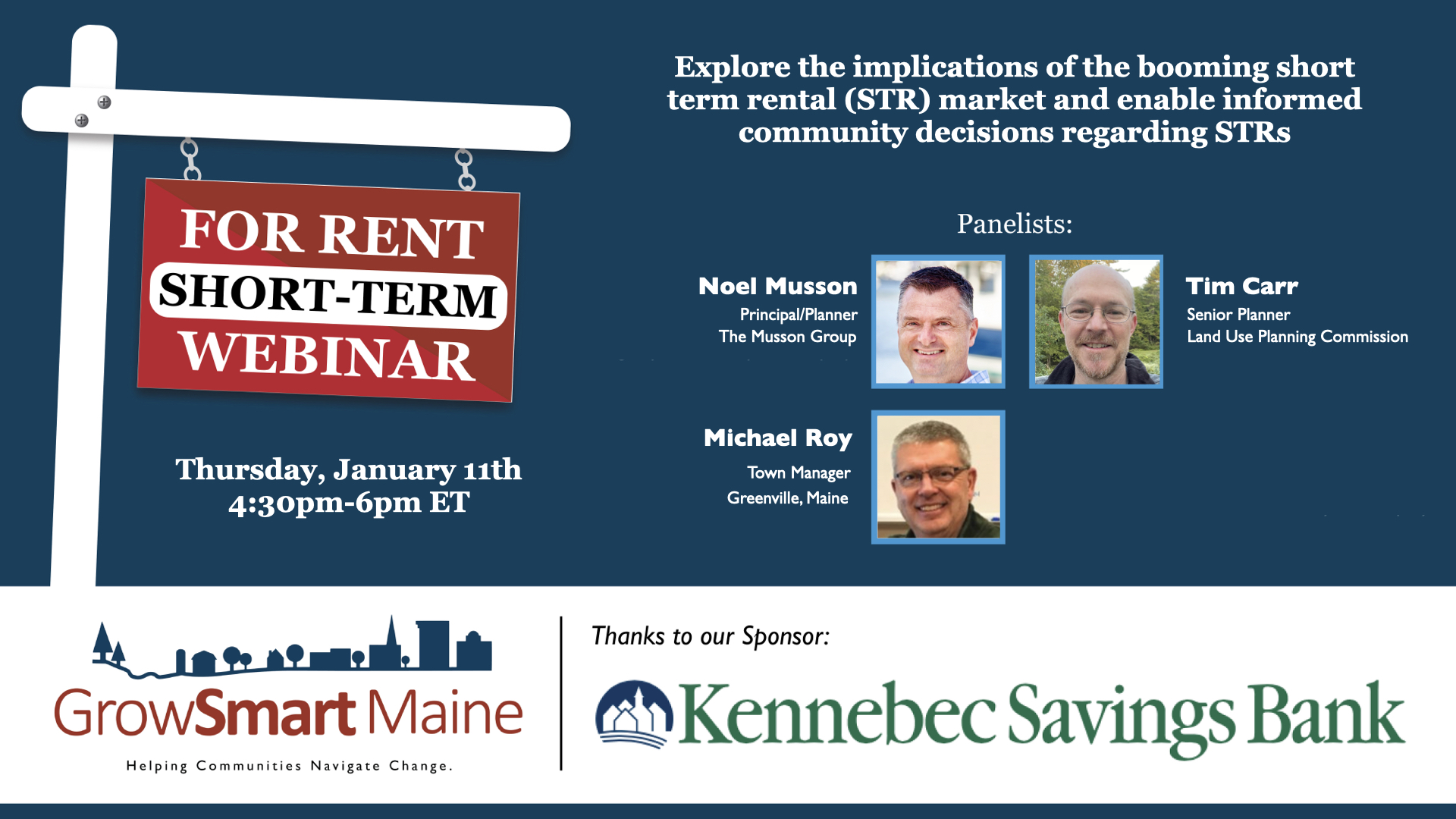Did you miss our webinar on short term rentals? Watch the recording here: https://youtu.be/HK3Ce2abpjU
|
Short Term Rentals (STRs) may not be the bogeyman some see them as, but they do create challenges. There has been a significant boom in demand for short-term rentals like Airbnb across Maine. That is part of a national trend in short-term rental activity: The market is seeing the most growth in small cities and rural locations, while urban locations are seeing the slowest growth, according to a U.S. market review from AirDNA. Our panelists will engage in a rich discussion around the costs and benefits of STRs in communities around Maine and raise awareness of the trends and tools available to manage them. During this webinar, you can expect to learn about:
Event details:Date: Thursday, January 11 2023 Time: 4:30pm-6:00pm ET Location: Online (Webinar link will be provided upon registration) Cost:Non-member registration ($25) Member registration (free) If you, your business, or organization are already a member of GrowSmart, please contact Amanda Vermillion at membership@growsmartmaine.org for a code to register for free.
REGISTER HERE
Please help us spread the word about this event by sharing this invitation with friends, colleagues, and anyone interested in exploring the impact of STRs on communities in Maine. Not sure if you’re a member of GrowSmart Maine? Please feel free to reach out to Amanda L. Vermillion at membership@growsmartmaine.org. To find out more about becoming a member, click here! At GrowSmart Maine, we are committed to fostering knowledge, collaboration, and innovation. We hope you join us at the webinar to get equipped with the tools necessary to form constructive conversations and well-informed decisions regarding STRs in communities across the state. |

